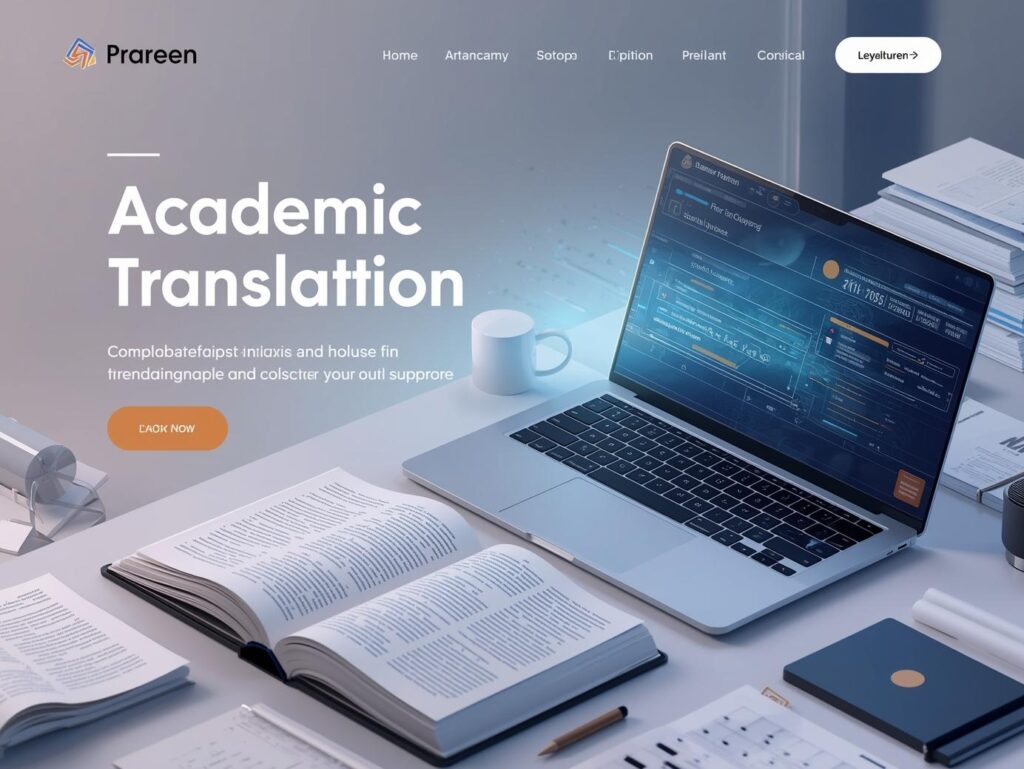Academic translation is a specialized field within the broader scope of language services, focusing on the accurate and precise transfer of scholarly content across different languages while maintaining the integrity of the original material. This discipline is crucial in facilitating international research collaborations, disseminating scientific knowledge, and enhancing global academic discourse. Unlike general translation, academic translation demands a deep understanding of subject-specific terminology, disciplinary conventions, and contextual nuances, ensuring that complex ideas, methodologies, and findings are conveyed clearly and faithfully. The significance of academic translation is underscored by the increasing globalization of research, where scholars often publish in multiple languages to reach diverse audiences, thereby amplifying the impact and reach of their work.
Core Components of Academic Translation
Academic translation encompasses various document types, including research articles, theses, dissertations, conference papers, grant proposals, and academic books. Each type presents unique challenges; for instance, research articles often involve specialized terminology, intricate data presentation, and strict adherence to journal-specific formatting and style guides such as APA, MLA, or Chicago. Theses and dissertations, on the other hand, require comprehensive translation that captures the depth of the research while maintaining academic rigor. Conference papers demand concise yet precise language to fit within presentation constraints. Successful academic translation hinges on two fundamental aspects: linguistic accuracy and contextual fidelity. Translators must not only convert words from one language to another but also adapt idiomatic expressions, cultural references, and disciplinary conventions to ensure the material resonates with the target audience.
Specialized Knowledge and Skills
The intricacies of academic translation require a blend of linguistic proficiency and domain expertise. Translators often specialize in particular fields, such as medicine, engineering, social sciences, or humanities, to handle discipline-specific terminology and concepts effectively. This specialization ensures that translations reflect current terminology standards and reflect the nuances inherent in scholarly discourse. Moreover, familiarity with academic publishing standards is essential—understanding citation styles, data presentation formats, and ethical considerations like plagiarism and proper attribution is vital to produce credible translations. A well-trained academic translator must also possess strong research skills to verify terminology and contextual details, especially when dealing with emerging fields or novel concepts.
Challenges in Academic Translation
One of the primary challenges in academic translation is dealing with the complexity of content. Scientific texts often contain dense data, complex sentence structures, and technical jargon that can be difficult to interpret and render accurately in another language. Ambiguities or misinterpretations can lead to significant misunderstandings, potentially impacting research validity or the publication process. Additionally, language-specific conventions can create hurdles; for example, the way references are formatted differs across languages and styles, demanding meticulous attention to detail. Cultural differences also influence how concepts are presented—what is common knowledge in one academic community may require elaboration in another. Ensuring consistency throughout lengthy documents adds another layer of difficulty, especially when multiple translators or reviewers are involved.
Quality Assurance and Ethical Considerations
Maintaining high quality in academic translation necessitates rigorous processes, including multiple rounds of editing, proofreading, and peer review. Many translation agencies employ subject matter experts to review translations, ensuring terminological accuracy and contextual appropriateness. Ethical considerations are paramount; academic translations must uphold integrity by accurately representing the original work without distortion, fabrication, or misrepresentation. Proper attribution and adherence to intellectual property rights are also critical, particularly when translating copyrighted material. Transparency with clients regarding translation limitations or uncertainties enhances trust and ensures that expectations are managed appropriately.
The Role of Technology in Academic Translation
Advancements in translation technology have significantly impacted the academic translation landscape. Machine translation tools like Google Translate and DeepL offer rapid initial drafts, but their effectiveness in handling specialized academic content remains limited due to struggles with domain-specific terminology and contextual nuances. To address this, many professionals utilize Computer-Assisted Translation (CAT) tools such as SDL Trados Studio or memoQ, which facilitate consistency, terminology management, and efficient workflow. Additionally, terminology databases and glossaries are vital for ensuring uniformity across documents. Emerging developments in artificial intelligence and neural machine translation continue to improve accuracy, but human expertise remains indispensable for quality assurance in scholarly contexts.
The Future of Academic Translation
As the volume of global research continues to grow, the demand for high-quality academic translation is poised to increase. Multilingual publishing platforms and open-access repositories are making scholarly work more accessible worldwide, emphasizing the need for precise translations. Future trends may involve more sophisticated AI-driven tools integrated with human oversight, enabling faster and more accurate translations. Furthermore, interdisciplinary collaboration and cross-cultural communication will likely expand, requiring translators to adapt to evolving academic standards and diverse disciplinary languages. Training programs for academic translators will increasingly emphasize digital literacy, subject matter expertise, and ethical practices to meet these dynamic demands. Ultimately, academic translation will remain a cornerstone of international scholarship, fostering knowledge exchange and innovation across borders.
In conclusion, academic translation is a nuanced and vital discipline that underpins the dissemination of scholarly knowledge worldwide. It demands a unique combination of linguistic skill, disciplinary expertise, cultural awareness, and ethical integrity. As the academic landscape evolves with technological advancements and increasing globalization, the role of skilled translators becomes ever more critical in ensuring that research transcends language barriers without losing its original meaning, rigor, or impact.
